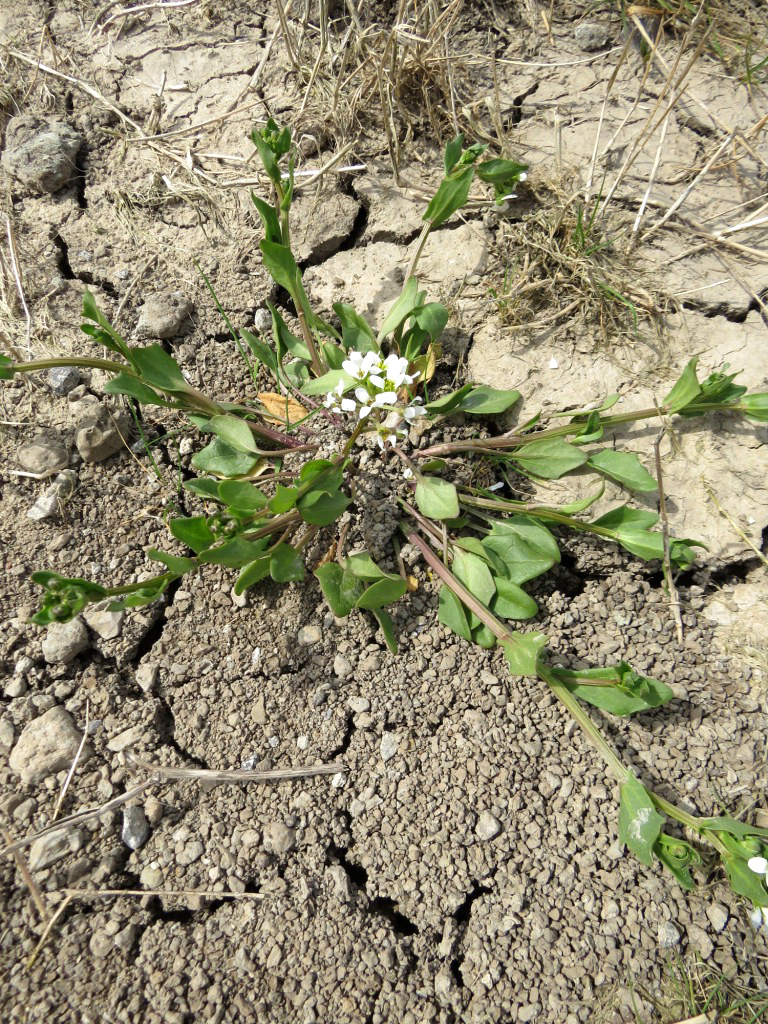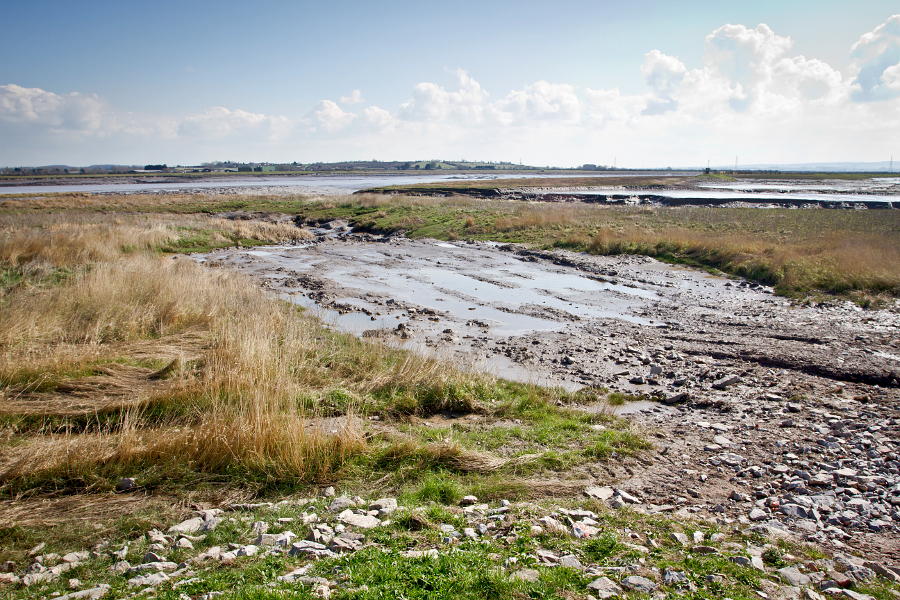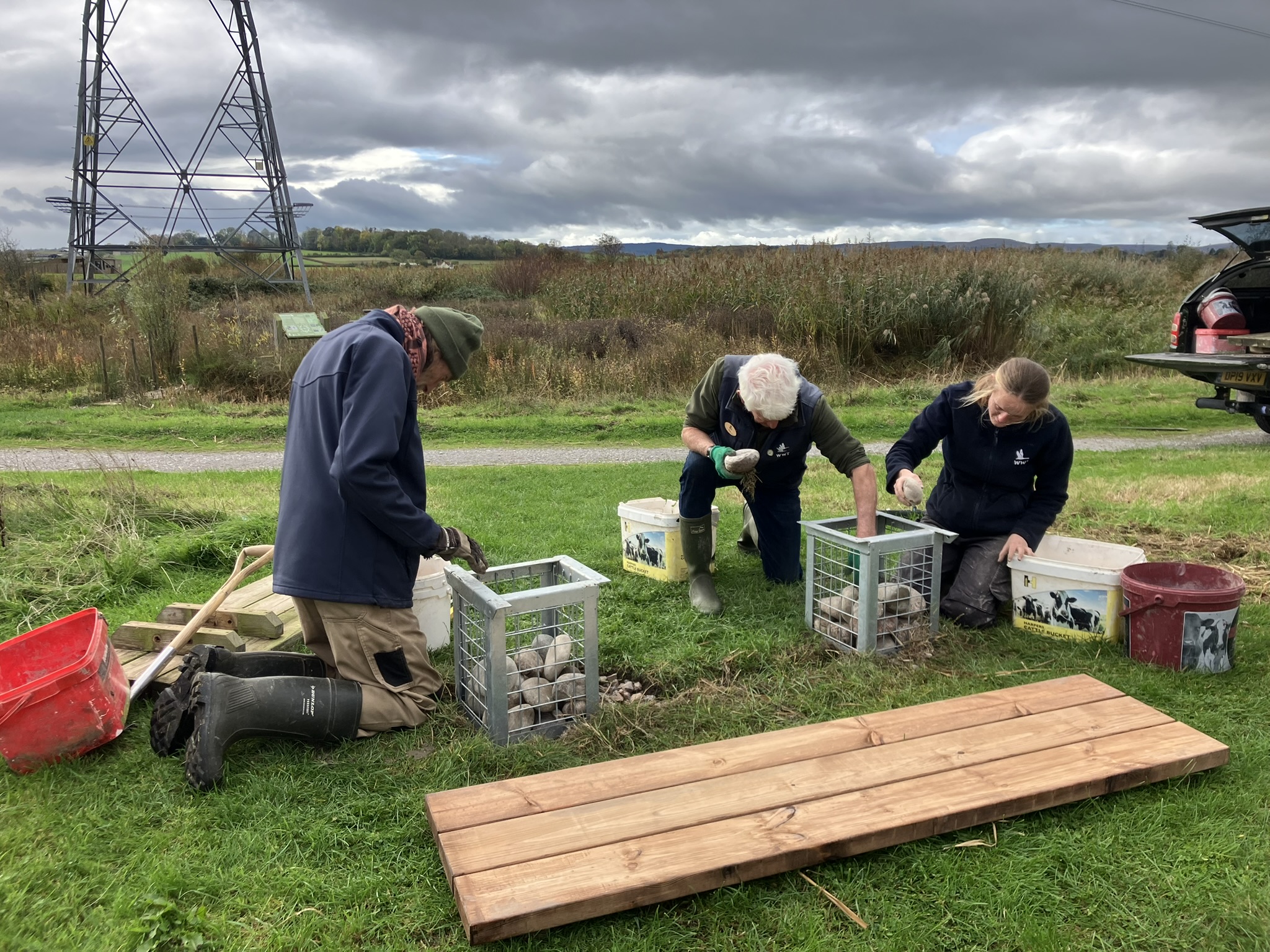First salty green shoots at WWT Steart Marshes

The first saltmarsh plants have sprouted at WWT Steart Marshes, signalling a new phase for the Somerset wetland reserve which buffers homes and businesses on the Steart peninsula from coastal flooding.
Wardens from the Wildfowl & Wetlands Trust (WWT) last week found 14 English scurvygrass (Cochlearia anglica) plants, often the first plant to colonise new saltmarshes.
Steart Marshes was created from low-lying farmland at risk from rising sea levels. Last September diggers breached the artificial sea wall to allow the tides from the Severn to start slowly forming saltmarsh.
Over winter, high tides have shaped the landscaped and deposited silt, along with seeds and fragments of plants which are now starting to grow.
WWT’s Tim McGrath said:
“These little plants may not look like much but they’re specially adapted to live in the salty conditions along our coast, so it’s really exciting to see them appearing on Somerset’s newest bit of coast – Steart Marshes!
“Scurvygrass are the pioneers and should soon be joined by lots of other saltwater-loving plants. Together they’ll form the very special flora of saltmarsh, which traps sediment from the silty Severn and binds it together in a very particular way.
“Saltmarsh like this is incredibly valuable for wildlife and it naturally takes the power out of waves, protecting houses along the peninsula and forming a vital, natural part of sea defences along the Severn Estuary.”

Scurvygrass is so called because its leaves helped sailors suffering from scurvy, a vitamin C deficiency. It is related to horseradish and watercress and its peppery leaves are still sometimes used in salads.
Despite being a coastal plant, scurvygrass is today often found far from the sea along the side of roads which have been treated with salt during winter. Seeds caught on car wheels are transported inland where it thrives in the salt-rich soil of verges.



